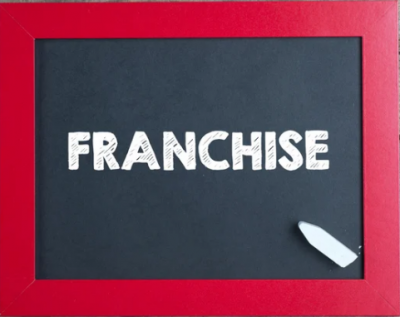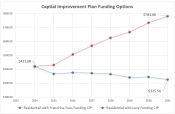The City Council passed electric ordinances in October 2024 and finalized the franchise fees in December 2024. Electric utilities will begin charging fees in September 2025.
WHAT IS A FRANCHISE FEE?
Every city has a franchise agreement with its utility companies (gas, electric, etc.) to use or rent the city owned right-of-way for business purposes.
- Right-of-way is city property located adjacent to roadways for utilities, construction access, and snow storage.
- By law, cities may charge utilities a fee for use of city-owned right-of-way. Utility providers will likely pass this fee onto their customers
How will it be used?
The city would fund regular maintenance projects with the money collected from the fee, including overlays and reconstruction, to prolong the life cycle of streets to 50- 60 years. The average life expectancy of local streets is approximately 25-30 years without ongoing maintenance.
Reliance on state funds, property taxes and increasingly expensive materials make the pavement management program vulnerable to cuts and delays, thus decreasing street life.
The city currently borrows money through bonding for new and reconstruction projects which is funded by general property taxes. At this point in time, the majority of all city streets are older than 30 years and require costly maintenance and repair.
Is this a New Tax?
By definition, the planned franchise fee is a rental fee or reimbursement with proceeds dedicated to finance the costs of the city street system.
Revenue collected from the fee, which will likely be passed on to customers of the utilities, will replace the portion of the property tax levy used to pay for street improvements.
To manage the larger street network and fully implement an adequate street improvement plan, the city will need to continually add $350,000 to the levy without an alternate funding source.
What are the benefits?
- More equitable funding plan than property taxes based on property value.
- Tax exempt properties will participate
- Smaller monthly fees instead of large tax statements.
- Collects money from all roadway users, including tax exempt properties
- Collects money from renters who pay utility bills and also use the streets, not just the property owners.
- Current and future property owners pay a similar fee
- Keeps maintenance and reconstruction on a proactive and timely schedule.
How Much will this Cost?
Fees would be applied to electric providers within the City of Grand Rapids and are proposed as follows:
Residential: $1.25/month ($15/year)
Commercial/Industrial: 2.5% of monthly electric bill with a maximum of $2,000/month.
Fees would increase on an annual basis as the program progresses. Most property owners will see an overall reduction in the amount they pay towards the street improvement program. This is due to the reduction in the amount of their taxes that are attributable to street projects and the more equitable approach of including tax exempt properties.


